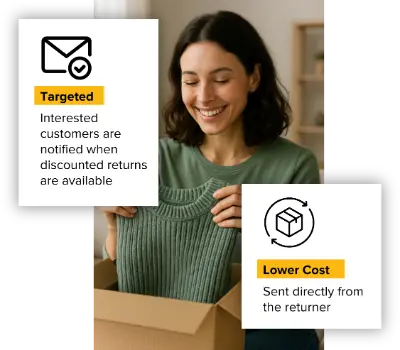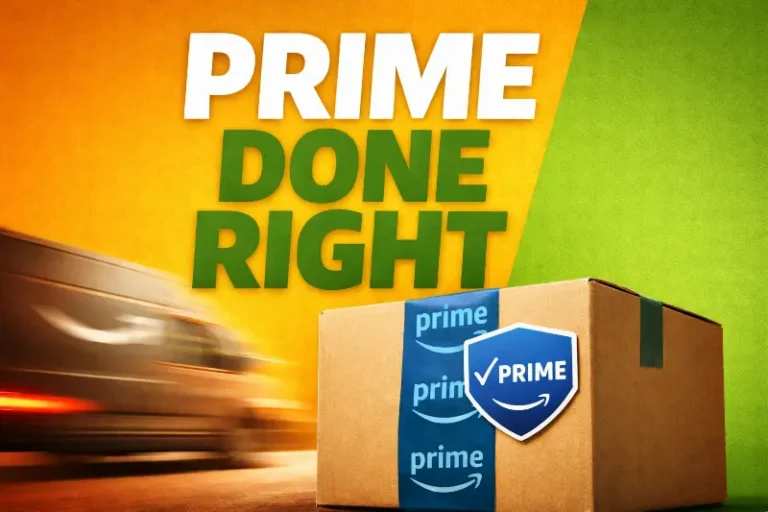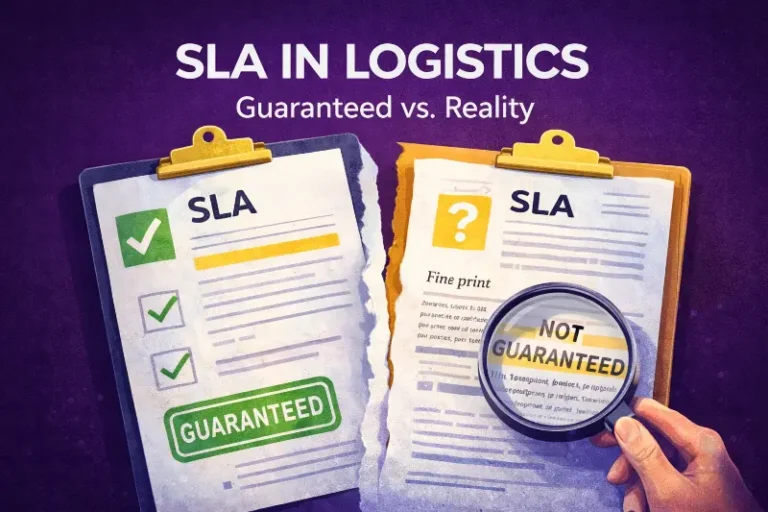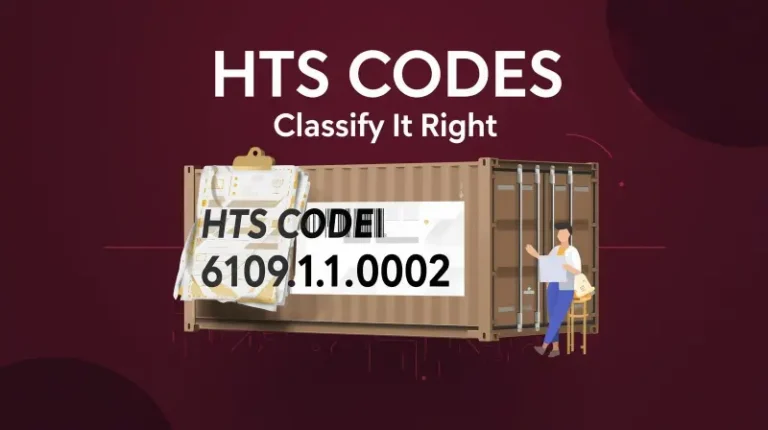How To Find A Freight Forwarder: Importing Into The U.S. 101

Last updated on August 20, 2025
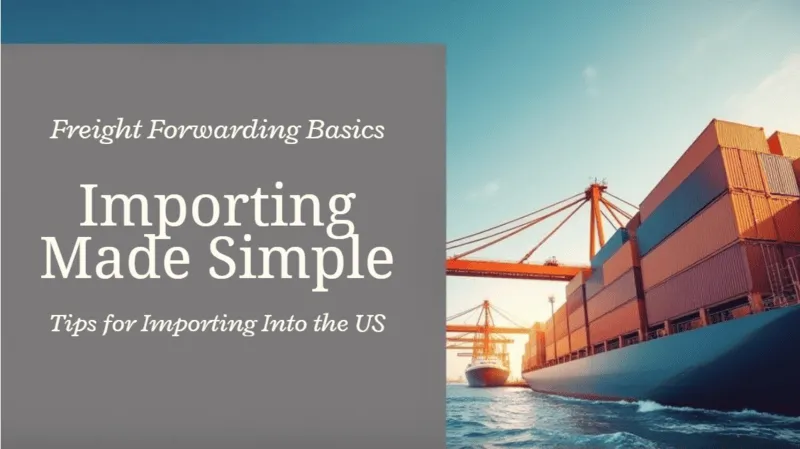
In this article
 8 minutes
8 minutes
- Tip 1. Verify Licenses And Bonds Before You Compare Rates
- Tip 2. Ask Who Files Your ISF 10+2 And When
- Tip 3. Choose Incoterms That Match Your Risk Tolerance
- Tip 4. Ask About CTPAT And Trusted Trader Programs
- Tip 5. Demand Mode And Lane Options Up Front
- Tip 6. Plan The Handoff To Your 3PL Before The Ship Sails
- What A Great Forwarder Looks Like
- Common Pitfalls That Kill Margin
- The Cahoot Angle
- Frequently Asked Questions
You can absolutely import inventory into the U.S. without losing sleep or margin. Freight forwarding companies play a key role in facilitating the import process for businesses of all sizes. The trick is picking a freight forwarder who treats compliance like oxygen and hands your cargo cleanly to your fulfillment partner. Here is the practical playbook I use with sellers who are new to international shipments.
Tip 1. Verify Licenses And Bonds Before You Compare Rates
Ocean forwarders and NVOCCs (Non-Vessel Operating Common Carrier) that move your containers must be properly licensed by the Federal Maritime Commission. You can verify an Ocean Transportation Intermediary’s license status in the FMC’s public database, and you can confirm their bond. When reviewing a forwarder, make sure to check all paperwork, including permits and insurance, to ensure full compliance. For example, a hazardous materials permit may be required if your cargo includes dangerous goods. If your forwarder cannot provide a license number, the necessary permits, or shows up as non-compliant, walk away.
Air forwarders should have an IATA number and TSA compliance as an indirect air carrier. Trade associations like NCBFAA (National Customs Brokers & Forwarders Association of America) outline the basics. Additionally, air forwarders should hold any required permits for handling specific cargo types, such as perishable or restricted items. The point is simple. Compliance first, quotes second.
Slash Your Fulfillment Costs by Up to 30%
Cut shipping expenses by 30% and boost profit with Cahoot's AI-optimized fulfillment services and modern tech —no overheads and no humans required!
I'm Interested in Saving Time and MoneyTip 2. Ask Who Files Your ISF 10+2 And When
For ocean freight, U.S. Customs requires an Importer Security Filing 24 hours before the cargo is laden at the foreign port. The ISF filing process involves several steps, including gathering shipment details, submitting accurate information, and confirming receipt by Customs; following each step carefully is crucial to avoid penalties. Late or missing filings can trigger holds, inspections, and monetary penalties. Your forwarder or customs broker should own the data flow and the deadline, not your intern. Put it in writing. Clear communication between the importer and the forwarder is essential to ensure all deadlines are met and responsibilities are understood.
Tip 3. Choose Incoterms That Match Your Risk Tolerance
Incoterms define who pays for what and when risk transfers. If you pick DDP, the seller handles import clearance and duties. If you pick DAP, you, the buyer, handle import clearance. Pick wrong and you inherit surprise costs at the final destination. The ICC and reputable logistics providers publish clear differences between DDP and DAP. Read them, then decide.
Understanding how Incoterms affect the shipping process is crucial for importers, as these terms determine responsibilities and costs at each stage. A freight forwarder’s ability to advise on and manage various Incoterms can help importers avoid unexpected costs and ensure a smooth shipping process.
Tip 4. Ask About CTPAT And Trusted Trader Programs
CTPAT-validated partners (Customs-Trade Partnership Against Terrorism) can see reduced CBP (Customs and Border Protection) examinations and faster processing. Participation in CTPAT is a critical factor for importers in industries with high compliance requirements, as it can significantly impact shipping efficiency and reduce overall costs. Certain industry sectors, such as pharmaceuticals and electronics, benefit more from trusted trader programs due to the sensitive nature of their goods. The Trade Compliance program is voluntary, but for high-velocity importers, the benefits are real. If your forwarder participates or can align with your importer status, you can shave days of unpredictability off lead times.
Tip 5. Demand Mode And Lane Options Up Front
Do not let a forwarder sell you a single route. For many SKUs, the right forwarder offers a full range of logistics solutions, including ocean freight for base flow and air freight for exceptions, with clear guidance on when to switch. Access to trucks is essential for domestic transportation, ensuring goods move efficiently from warehouses to final destinations. A reliable forwarder will arrange all aspects of the shipment, including scheduling trucks and coordinating with carriers. You want at least two carriers per lane, transit time options, and visibility tools that show where the container is, not just when it left. Forwarders offering integrated logistics solutions can provide more flexibility and efficiency. Reputable guides from carriers and platforms explain how forwarders aggregate volumes to get better routes and rates.
Looking for a New 3PL? Start with this Free RFP Template
Cut weeks off your selection process. Avoid pitfalls. Get the only 3PL RFP checklist built for ecommerce brands, absolutely free.
Get My Free 3PL RFPTip 6. Plan The Handoff To Your 3PL Before The Ship Sails
Your forwarder is not your 3PL. Make sure the arrival notice, customs clearance status, and delivery orders are shared with your fulfillment partner early. That includes documentation, lading details, and any hazardous materials or perishable goods flags. Coordinate with your suppliers to ensure all necessary information and documentation are provided for a smooth handoff. Proper packaging is essential to ensure goods arrive safely and meet fulfillment requirements. If your fulfillment partner requires appointments at their distribution centers, your forwarder should book trucking in time to meet your launch date. Warehouses play a crucial role in ensuring efficient inventory management and smooth coordination between shipping parties. This is where Cahoot’s partner list helps. We match import lanes with the right last mile and warehousing so your inventory hits the shelf quickly.
What A Great Forwarder Looks Like
- Licensed and insured with transparent bonds and a clean FMC entry.
- Strong customs brokerage, either in-house or via a close partner.
- Clear SOP for ISF and entry filing with named owners and backups.
- Incoterms coaching before you sign the PO with your supplier.
- Multiple modes and carrier options with time-definite transparency.
- Comprehensive service and solutions, including excellent customer service, responsive communication, and value-added offerings to ensure smooth shipping operations.
- Expertise in specific industries or routes, ensuring the forwarder understands your market, regulatory requirements, and can navigate local nuances effectively.
- Proven handling capabilities for various types of cargo, including hazardous materials and perishable goods, to guarantee compliance and safety throughout the logistics process.
- Ability to provide all the services required for your supply chain, such as multimodal transportation, warehousing, and integrated logistics solutions, so there are no gaps in coverage.
- Selecting the right freight forwarder means choosing a partner who meets all these criteria and can fully support your shipping needs.
Common Pitfalls That Kill Margin
- “DDP included” without a real broker. You pay twice when surprise duties appear on arrival.
- Late ISF filings. Your cargo sits. You pay storage. Your launch slips. CBP is unsentimental about deadlines.
- No appointment at the final destination. The forwarder blames the warehouse. Warehouse blames forwarder. Customers do not care.
- Choosing based on price only. The cheapest quote often hides documentation, delivery, or demurrage risk you will learn about later. Trying to save money upfront can actually cost your business more in the long run if important factors like reliability, customer service, and specialty needs are ignored.
Selecting the right freight forwarder is an important factor for business success. A good forwarder can help streamline your shipping process, reduce risks, and ensure your money is managed properly, supporting your business growth and efficiency.
Scale Faster with the World’s First Peer-to-Peer Fulfillment Network
Tap into a nationwide network of high-performance partner warehouses — expand capacity, cut shipping costs, and reach customers 1–2 days faster.
Explore Fulfillment NetworkThe Cahoot Angle
Cahoot does not pretend to be your forwarder. We partner with licensed, audited forwarders and customs brokers, then make the U.S. handoff painless. Our fulfillment network receives, checks, and slots your goods into the right nodes so you can start selling faster. From the ocean vessel to the customer’s doorstep, the supply chain only works if every handoff is clean. Contact Cahoot to learn how you can save shipping time and money, even if you don’t require order fulfillment services.
Freight forwarding companies play a crucial role in the global market by helping businesses, exporters, and shippers manage complex international shipping logistics. In a country like China, which is the world’s largest exporter, the freight forwarding market is highly developed, and exporters rely on intermediaries to navigate regulations and ensure goods are delivered efficiently. Companies such as UPS and DHL operate ships and provide international shipping services, supporting the movement of goods across borders. Maintaining regular contact with your forwarder is essential to confirm shipments are delivered on time and users receive a positive experience. Businesses should search for a company with a proven track record in managing shipments and providing reliable delivery to stay competitive in the international shipping market.
Frequently Asked Questions
Do I Need A Freight Forwarder Or Just A Customs Broker?
Most importers use both. The forwarder manages transportation door to door and offers a range of services—such as warehousing, customs clearance, and logistics solutions to meet different shipping needs. The customs broker files entries with CBP and coordinates PGA requirements. Many firms provide both. Verify roles in your contract.
What Happens If My ISF Is Late?
CBP can assess penalties, increase inspections, or delay release. Your container may sit while fees accrue. Assign ISF responsibility to your forwarder or broker in writing and audit the workflow.
Should I Choose DDP Or DAP?
If you want control and transparency on duties and taxes, DAP is safer. If you want simplicity and are willing to pay a premium, DDP shifts import clearance to the seller. Align the choice with your compliance capability.
How Do I Check If A Forwarder Is Legitimate?
Use the Federal Maritime Commission’s OTI (Ocean Transportation Intermediaries) and NVOCC (Non-Vessel Operating Common Carrier) databases to confirm license and bond status. Ask for proof of insurance and recent reference letters.
Can A Forwarder Reduce My Lead Time?
Yes. CTPAT-aligned partners and multi-carrier routing often reduce holds and improve reliability. The right forwarder is a logistics provider that designs options, not a single price.

Turn Returns Into New Revenue
